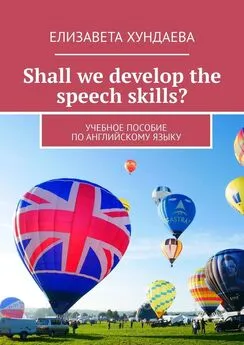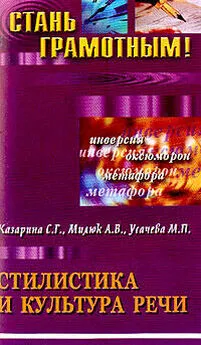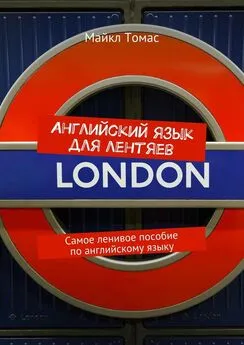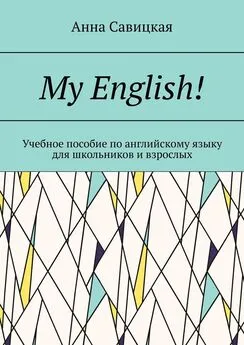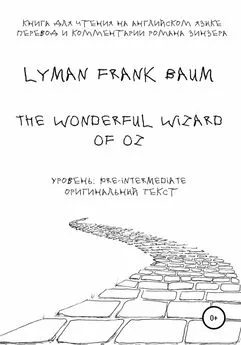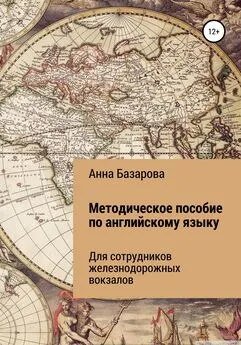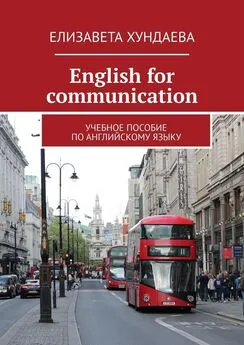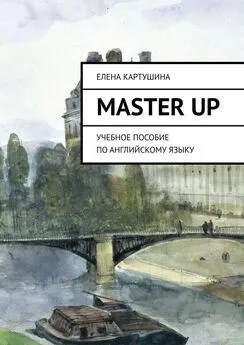Елизавета Хундаева - Shall we develop the speech skills? Учебное пособие по английскому языку
- Название:Shall we develop the speech skills? Учебное пособие по английскому языку
- Автор:
- Жанр:
- Издательство:неизвестно
- Год:неизвестен
- ISBN:9785449659996
- Рейтинг:
- Избранное:Добавить в избранное
-
Отзывы:
-
Ваша оценка:
Елизавета Хундаева - Shall we develop the speech skills? Учебное пособие по английскому языку краткое содержание
Shall we develop the speech skills? Учебное пособие по английскому языку - читать онлайн бесплатно ознакомительный отрывок
Интервал:
Закладка:
Pattern 7: Their – theirs
Differentiate (различать) between «their’ and «theirs’. «Their’ is used with a noun (существительное) after it: their book. «Theirs’ is used with no noun after it: a book of theirs.
This is their venture (затея, рискованное предприятие). This venture is theirs.
That is their keyboard (клавиатура). The keyboard is theirs.
These are their processors (процессор). These processors are theirs.
Those are their desks (письменный стол). Those desks are theirs.
Translate, please.
Это (this is) их решение (decision). Это решение – их.
То было их предложение (proposal). То предложение было – их.
Это были (these were) их решения. Эти решения были их.
Те (those) были их гаражи (garage). Те гаражи были их.
Translate, please.
This is my suitcase (небольшой плоский чемодан). This suitcase is mine.
That is your frock (платье). That frock is yours.
This is his scanner. This scanner is his.
Those are her printers. Those printers are hers.
This is our computer. This computer is ours.
This is your (ваш) house. This house is yours.
That is their office. That office is theirs.
That is my muffler (теплый шарф, кашне).
These are your scarves (шейный платок, косынка).
That is his venture (предприятие).
This is her purse (дамская сумка).
This is our beach umbrella (пляжный зонт).
Those are their parasols (зонт от солнца).
Say as in the example, please.
Example:
Is this pencil yours? Is this your pencil?
Is that desk his? Is that his desk?
Are these printers yours? Are these your printers?
Are those discs theirs? Are those their discs?
Now give your own examples.
Will you translate, please?
Was that book yours? Was that your book?
Was that scanner ours? Was that our scanner?
Were those bags hers? Were those her bags?
Is that scanner yours? Is that your scanner?
Will you be so kind as to read, please?
Is that picture yours?
Are those pens hers?
Are those batteries (батарея, аккумулятор) yours?
Are these bracelets hers?
Are these hats theirs?
Are these slides mine?
Is that fashion magazine (журнал мод) his?
Are those glossy (глянцевый) magazines yours?
Is that illustrated (иллюстрированный) magazine hers?
The adjective (прилагательное) «the same»
I would like to ask you to translate the following, please.
Те же (the same) факты
Те же люди
Те же слова
Та же игра
Тот же стадион (stadium)
То же слово
То же предложение (sentence; proposal)
То же упражнение (exercise)
Тот же номер (room)
Та же улица
Та же дорога (road)
Те же люди
Тот же фильм
Тот же мультфильм (The same animated cartoon)
Та же муштра (drills)
Та же скукота (utter boredom).
The pronoun (местоимение) «the same»
If it were possible, they would do the same. – Если бы было возможно, они сделали бы то же самое.
Just tell them the same.
You must do the same.
They all said (говорить) the same.
Please, do the same.
They all wanted to repeat (повторить) the same.
You shouldn’t (не следует) purchase (покупать) the same.
The adverb (наречие) «the same»
Adverb (наречие) «the same» – таким же образом, так же, одинаково
They are pronounced the same – Они произносятся одинаково.
You should not dress (одеваться) the same (так же) as he does.
Do not behave (вести себя) the same (таким же образом) as they all do.
You stared (уставиться) at the people around (вокруг) the same (так же) as your girl-friend (подруга) does.
You walked (шагать, ходить) the same as your coach (тренер) does.
Don’t lie (лежать) on the couch (кушетка, диван) the same as some old men generally (обычно) do.
You stoop (сутулиться) just the same (так же) as my grandma (бабушка) does but she’s an old person and you are a pretty (хорошенький) young girl.
Like this
Please, try to memorize (запомнить): Like this – вот так (таким образом)
Делай это вот так (Do it like this).
Произноси вот так (Pronounce like this).
Ходи вот так (Walk like this).
Танцуй вот так (Dance like this).
Говори вот так (Speak like this).
Веди себя таким образом (Behave like this).
Пой вот так (Sing like this).
Пользуйся (Use) пультиком (joystick) вот так.
***
Whistle like this (свисти вот так)
Explain (объяснять) like this
Write like this
Read like this
Walk (ходить, шагать) like this
Speak like this
Clap your hands (хлопать в ладоши) like this
She explained (объяснить) it like this.
He began his story like this.
The phrase was translated like this.
He manages the affairs (руководить) of our lab like this.
The head (руководитель, глава) of our department (отдел) began the conference (совещание, конференция) like this.
She begins the experiment like this.
I process (обрабатывать) the data (данные) like this.
We make the computations (расчет, вычисление) like this.
Do you process (обрабатывать) the data (данные) like this?
We make measurements (проводить измерение) like this.
You take note (записывать, регистрировать) of the initial (начальный) and the final (конечный) data (данные) like this.
He makes the experiments like this.
The supervisor (руководитель) consults his workers like this.
They formulate (формулировать) the working hypothesis (рабочая гипотеза) like this.
The warrantor (финансовый поручитель) gave a reference (дать рекомендацию) praising (хвалить, превозносить) the borrower (заемщик) or the debtor (должник, дебитор) like this.
She sang like this.
He spoke like this.
The actor recited (декламировать, читать) the poem (стихотворение, поэма) like this.
The girls danced like this.
The children played like this.
The ballerina danced like this.
The actor sang the song like this.
She spoke (говорить, выступать) like this.
They helped each other like this.
They learn the foreign languages like this.
He learnt to drive the car like this.
Ann expressed the main idea like this.
Peter condemned (осуждать) their behavior (поведение) like this.
Pretty good; pretty tired; pretty bad
Look through the following sentences and pay attention to the usage of the attributes (определение), please.
Pretty good – весьма хороший; pretty tired (весьма усталый); pretty bad (весьма плохой).
The suggestion is pretty good, isn’t it? – Предложение весьма хорошее, не так ли?
The impressions (впечатление) are pretty good, aren’t they?
Being in high spirits (быть в хорошем настроении) is pretty good, isn’t it?
The performance (исполнение) is pretty good, isn’t it?
They look pretty tired, don’t they? – Они выглядят весьма усталыми, не так ли?
He looked pretty tired after the trip, didn’t he?
They looked pretty tired after going shopping, didn’t they?
They all looked pretty tired after the debate, didn’t they?
The proposal is not good, I would say it is pretty bad (весьма плохое), isn’t it?
The weather is pretty bad, isn’t it?
Being late for the date (cвидание) is pretty bad, isn’t it?
Rather than; would rather
1. Rather than – а не
I would go shopping rather than stay home alone.
I would have a cup of tea rather than (а не) coffee.
Please, read this article rather than that one.
You would go boating now rather than riding a car, wouldn’t you (не так ли)?
He’d play tennis rather than help you in the garden, wouldn’t he?
She’d stay home rather than lie (лежать) on the beach (пляж), wouldn’t she?
We’d go to the theatre rather than stay home doing nothing, wouldn’t we?
They would play chess (шахматы) rather than play football, wouldn’t they?
2. Rather – лучше бы, скорее бы, охотнее бы
I would rather (I’d rather) – я бы лучше
I’d rather go shopping – Я лучше бы прошлась по магазинам.
She would rather (предпочла бы) go to some fashion salon.
He’d rather go (cкорее пошел бы) to the gym hall (cпортзал), would not he?
They’d rather play tennis, wouldn’t they?
You’d rather go swimming, would not you?
We’d rather go boating, wouldn’t we?
They’d rather have a cup of coffee, wouldn’t they?
Oh, going shopping is such a nuisance (помеха, досада, неприятность), one would rather (лучше) lie on the sofa (лежать на диване) and watch TV. That’s much better, isn’t it?
I’d rather say it is not at all. – Я бы сказала, что это вовсе не так.
You had better
You had better (You’d better) – лучше бы вы, вам бы лучше
You had better go home. Вам бы лучше идти домой.
You had better not smoke here.
You’d better (вам бы лучше) hurry up otherwise (а то, иначе) they might not wait for you.
They’d better (им бы лучше) leave (уехать) now not to miss (не пропустить, опоздать) the train.
You’d better help us.
You’d better not worry so much – Вам бы лучше не беспокоиться так сильно.
You’d better believe – можете быть уверены, можете не сомневаться.
You’d better take care of yourself.
To be of importance
The next stage is of great importance (иметь большое значение).
It is of interest (Это интересно).
It is of great interest.
Читать дальшеИнтервал:
Закладка:
